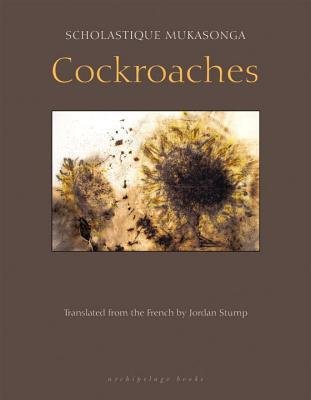Cockroaches by Scholastique Mukasonga
Review of Cockroaches by Scholastique Mukasonga
Cockroaches by Scholastique Mukasonga, translated by Jordan Stump (2016). Published by Archipelago.
Throughout the years, I’ve come to carefully curate the kinds of streams of where I learn about books. The one good thing about running a book blog is that you become aware of what you like as a reader.
What you do with that information, as we should try to diversify our reading habits as much as possible, is up to you, but it creates a sense of self and identity that’s more aware. So I try to find more social media accounts and review publications that are open and a little less mainstream because I know, for example, that I don’t like most TikTok books.
Anyways, it was through a YouTuber that I watch that I learned about Cockroaches. She described it as one of her favorite books, and I knew nothing about the Rwandan Genocide going into this. I wanted to learn more, which is why I asked for the book for Christmas.
It took me a bit before I actually got to read it, though. I was busy in my final semester of graduate school, and I needed to be able to finish my thesis on Korean women’s literature before May. I had started in January, so it was a monumental task ahead of me.
So I got to this book towards the end of the semester, in April, when I had finished up my third and final chapter. This book isn’t very long, and the sizing is a bit different from more mainstream publications, so I flew through this book over the course of an hour. It was hard to put down.
Let’s get into the review before I ramble too much, shall we?
The story of Mukasonga’s childhood and upbringing as a Tutsi on the eve of genocide.
This is a memoir that I found to be blunt and quite to the point. Mukasonga writes this with a practiced hand, and almost like a journalist in the way that she recalls the facts as she remembers them.
So Cockroaches is split into chapters, each of which reflects different points of her life. In 1969, Rwanda began the pogroms, which targeted the Tutsis of the country and forced them to leave their ancestral lands. Mukasonga’s family was one of them, and they lived in a village full of Tutsis.
There, they would not have the same opportunities that other kids from other backgrounds would have throughout the country. The kids were unlikely to get high enough scores, or be considered, to attend better schools in the country.
However, Mukasonga defies the odds, like her siblings, and is able to go to a good school after finding her name on the list of successful students. Her time at the school is marred by discrimination, and the Tutsi students, forced to succeed or consider nothing else in their futures, would lock themselves in the bathrooms to study.
Things take a turn for the worse in the country politically, and Mukasonga escapes with other Tutsi students when students at the school begin actively hunting for them. This is only the first sign of what’s to come in the country.
Mukasonga, like one of her other siblings, is able to find a way out of the country, as she left for France in 1986. She married a Frenchman and had children there, so when the official genocide began, she was unable to do anything for her family members.
Almost everyone in her family died. Some of the accounts of their deaths make their way back to her when she returns home, discovering that her family home is gone. These deaths are brutal and tragic, and reflect on how the Tutsi were seen as cockroaches on the land.
This is introduced early on in the memoir, as it is an important concept of her upbringing. The discrimination arises because the Tutsi are seen as inferior, and Mukasonga might not have survived herself if she had remained in Rwanda. Towards the end, we see everyone who died, including those who we met at the beginning of the memoir.
Overall Thoughts
For me, this was a horrifying, brief read. It was a necessary one, as I needed to confront the reality of a genocide I knew nothing really about. It was something that I had heard of in passing and knew happened, but there were no details I could recall in my mind.
Anyways, I thought that this style of writing worked so well. It was harrowing to see the facts laid before us, the names and memories of people who had once happily lived on this land. I say happily loosely when one is forced off their ancestral lands for no legitimate reason.
I think this is an incredible read overall. Go pick it up if you have not already—there is so much value in reading these kinds of perspectives, even if you know nothing about the material the book is covering.
Follow me below on Instagram and Goodreads for more.


![Jeju-do (제주도) is one of those places that reminds you of how stunning the world is
[7.12.2024 부터 7.14.2024 까지]](https://images.squarespace-cdn.com/content/v1/5ea1f794501b7153b29e7cd7/1721033601522-554E76HR01JUHDWZBJ1I/image-asset.jpeg)









